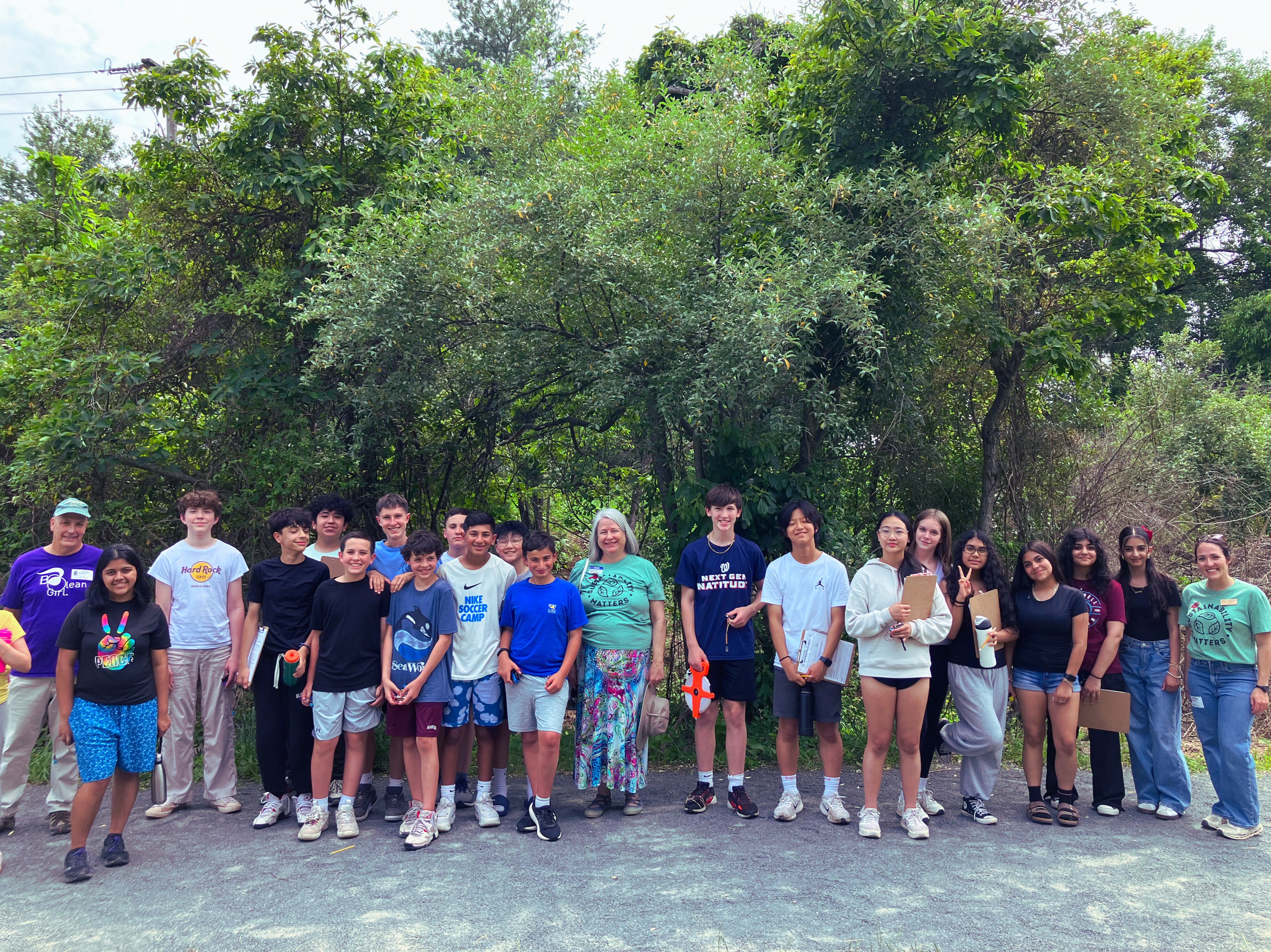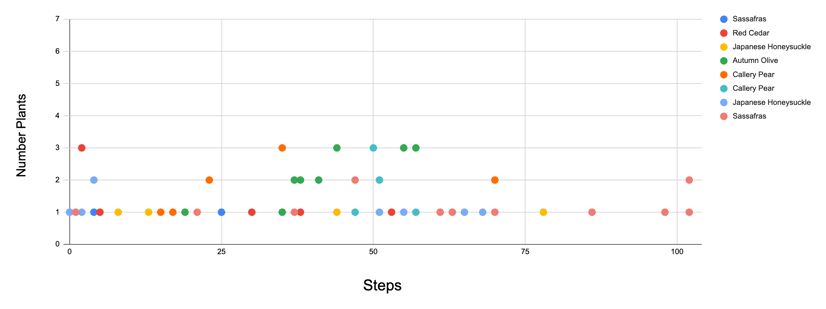
Boolean Girl joined together with the environmental nonprofit Sustainability Matters to launch ECO-Tech, a new program to teach students how tech supports environmental science by building a data collection tool and using it to connect environmental data. Following an initial pilot program, we will share our lesson plans with other school districts and offer free professional development to teachers who could use the program to collect various types of data including numbers of plants or pollinators counts.
We kicked off the pilot program last week with a class of 7th graders from Farmwell Middle School in Ashburn, Virginia. For the pilot, we planned to survey plants in a meadow near the school with a focus on the mix or native and invasive plant species. We began by learning about the plants we would survey and how invasive species impact the environment. Students then built and coded a field collection device using a micro:bit. Once in the field, the device collects data including time in the field, steps taken (distance), light level, sound level, temperature, humidity, and the number of each plant in the meadow.
For the second class, we went into the field, a stretch of meadow along the W&OD trail to survey plants. This work aligned with previous work the school and our partner Sustainability Matters did several months ago with the students to create a native meadow. In the field, students were assigned types of plants to count..png?width=401&height=318&name=image%20(1).png)
On the third day, we downloaded the data and learned how to decode the data through data analysis. The students really enjoyed working with their own data, especially the environmental data.
We charted the data and created a pie chart of the numbers of plants as well as a scatter chart that showed how many plants were along the section of the trail surveyed. We plotted them with an x-axis of the step where the plant was located creating a map of the meadow from the data collected.
We discussed the data and drew conclusions.One interesting finding is that this section of the W&OD Trail has a challenging problem with invasive species, as the students found significant amounts of pernicious invasives, including Japanese Honeysuckle, Autumn Olive, and Callery Pear, etc. However, the students also found a heartening number of native plants, including Sassafras and Red Cedar.
[NOTE: Plant duplicates are due to two different groups collecting the data.]

Participants in ECO-tech are learning how tech supports environmental science, showing how computer science is relevant to other industries -- such as environmental science -- and how it connects to the things they enjoy. This helps them open their eyes to a wide range of future careers.
Special thanks to our sponsor, ![]() , for the generous grant that allowed us to develop and pilot ECO-Tech!
, for the generous grant that allowed us to develop and pilot ECO-Tech!


Leave Your Comment Here